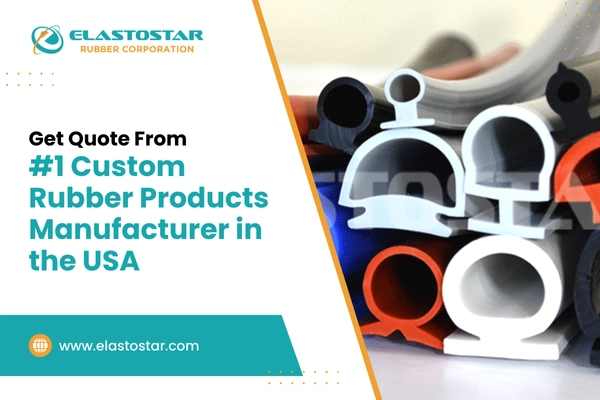Purchasing an item that you have never purchased before can be a scary task. A product that could potentially be a part of your daily, or even constant, life is a significant investment. Not knowing what it is or how it works is a recipe for disaster. For this reason, many people avoid trying new products and seek to find out everything about this product before making a decision.
If you are new to the manufacturing field or are just looking for the best rubber for your product, you might wonder what the difference is between closed cell silicone sponge and dense silicone rubber. For you to choose your product wisely, this article will briefly overview the two types of rubber.
Table of Contents
Definition-Closed Cell Silicone Sponge Vs. Dense Silicone Rubber
A closed-cell sponge rubber is an expanded rubber. The cells act like individual balloons holding the gas and blocking the passage of moisture as long as the cell wall has not ruptured. Closed-cell silicone sponge rubber is a preferred sealing and gasket material for various mechanical, military, industrial, and commercial applications because of its resilience, high-temperature stability, and general inertness.
On the other hand, sponge silicone rubber is a polymer that includes carbon, hydrogen, and oxygen and is the main component of the elastomer (material resembling rubber) known as silicone. Because of its high oxygen permeability, silicone rubber (polydimethylsiloxane) is effective as a dense membrane material for wastewater aeration.
I believe you have learned the basic definition of sponge silicone rubber gasket and Closed Cell Silicone Sponge. However, if you want to learn about the properties of both materials, the next section is for you.
Property Differences of Closed Cell Silicone Rubber and Dense Silicone Rubber
Closed-cell silicone sponges and dense silicone rubber are two of the most common silicone products effective in manufacturing and engineering. But which material is best for your project? Which one will give you a better return on your investment? Let’s examine some of the differences between dense silicone rubber and closed-cell silicone sponge-
1. Temperature
Both materials can handle high temperatures. But silicon rubbers perform better in high temperatures because they can generally function between 100 and 300 °C (150 and 570 °F). On the other hand, closed cell silicone sponges can perform better in the high-temperature range from -103° F to 450° F.
2. Weather Proofing
When it comes to waterproofing or weatherproofing, closed-cell silicon rubber is a clear winner because this gasket material is resistant to oxidation caused by sunlight, ozone, and ageing. On the other hand, Silicone Sponge Rubber Products are not weatherproof, but they are waterproof.
3. Chemical Proofing
Dense Solid Silicone and dense silicone rubber are both chemical-proof. Most common materials do not attack Dense Solid Silicone Extruded because they are typically chemically inert. On the other hand, Closed-cell silicone is flame-retardant to many industry standards and resistant to many chemicals.
Conclusion
If you have experience working in the manufacturing industry, you know that many types of silicone sponges and rubber are available. You might think that they’re all the same, but that’s not true. The type of sponge or rubber you need depends on your application and precisely what you need it for.

Briefing Up
We are the leading Silicone Sponge Rubber Manufacturers who aim to manufacture and supply the best sealing & gasket solutions. We use superior-quality materials and execute our manufacturing operations with great precision so that the end product matches your expectations.
For more use and application, please contact us with your details or Email us at info@elastostar.com or call us on 614-841-4400. We will help you to explore more ways to utilize our products for your special purpose.
Elastostar Rubber Corporation supplies custom-made high-quality silicone rubber cord profiles in different sizes, shapes and colors. We can also make custom silicone rubber tubing, silicone rubber cord, platinum cured rubber tubing, silicone rubber strips, vulcanized and splice silicone O-Rings, etc. Some of the market areas where our rubber products are in use include but are not limited to aerospace, auto industry, pharmaceutical, construction, medical, food & beverage industry, defense and military, etc. We work with our clients to select the feasible rubber material and provide robust customer service from our end.


